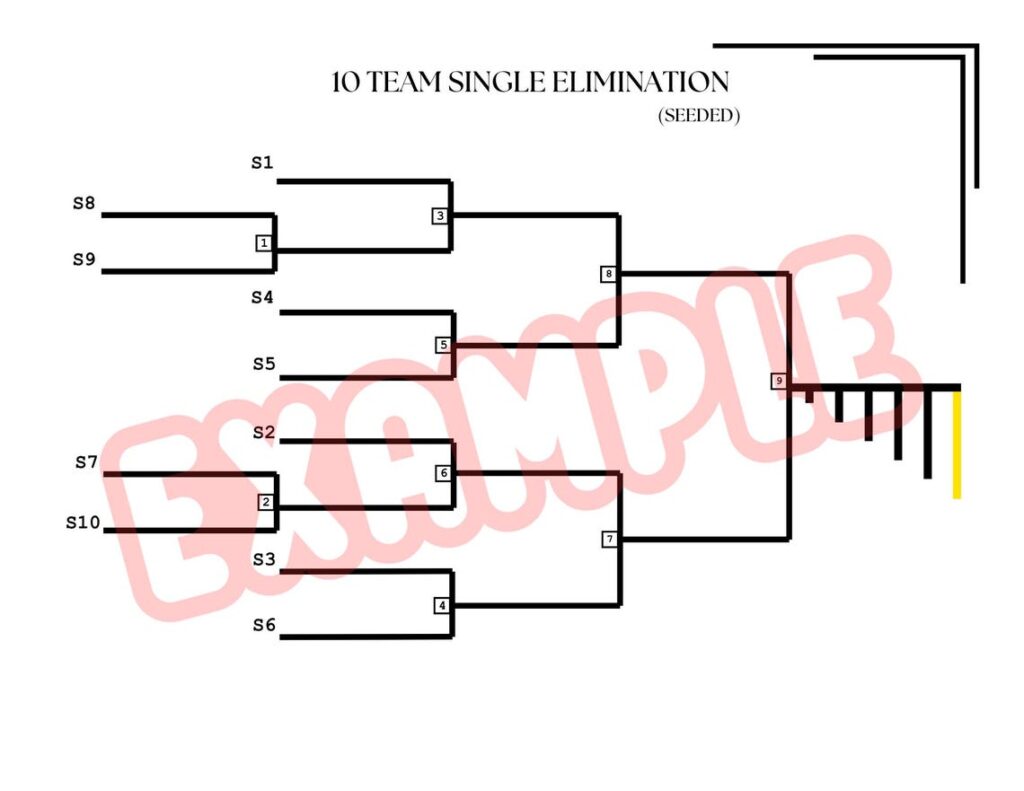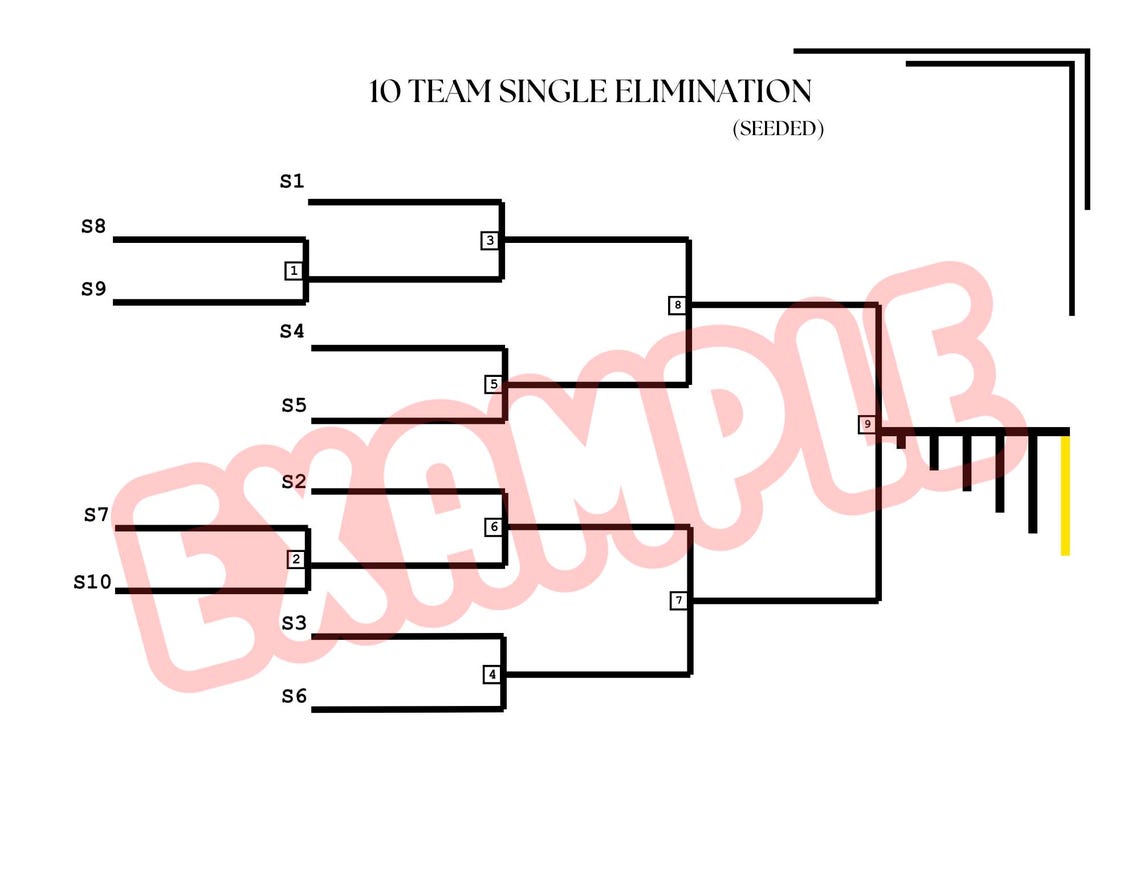
Is MCWS Single Elimination? Understanding Tournament Structures
Navigating the world of competitive gaming, especially when it comes to tournaments like the Modern Combat Warfare Series (MCWS), can be confusing. One frequently asked question is: “Is MCWS single elimination?” This article aims to provide a comprehensive answer, going beyond a simple yes or no to delve into the nuances of tournament formats, their implications, and how they impact the competitive landscape. We’ll explore single elimination, its pros and cons, and whether MCWS utilizes this format exclusively or incorporates other structures like double elimination or group stages. By the end, you’ll have a clear understanding of MCWS tournament formats and the strategic considerations involved. This in-depth analysis draws upon our extensive experience observing and analyzing competitive gaming structures, ensuring you receive an authoritative and trustworthy perspective.
What is Single Elimination? A Foundational Understanding
Single elimination, also known as a knockout tournament, is a competition format where a participant is eliminated from the tournament after losing a single match. Winners progress to the next round, culminating in a final match between the last two remaining players or teams. The beauty of single elimination lies in its simplicity and efficiency; it’s a fast way to determine a winner, especially when dealing with a large number of participants. However, its inherent ruthlessness means that a single bad game can spell the end for even the most skilled competitors.
The Mechanics of Single Elimination
Imagine a bracket where teams are paired against each other. After each match, the loser is out, and the winner advances. This continues until only one team remains undefeated. The number of matches needed to determine a winner is always one less than the number of participants. For example, a 32-team tournament requires 31 matches.
Advantages of Single Elimination
* Speed and Efficiency: Single elimination tournaments are quick to execute, making them ideal for events with time constraints.
* Simplicity: The format is easy to understand for both participants and viewers.
* High Stakes: Every match carries significant weight, creating a sense of urgency and excitement.
Disadvantages of Single Elimination
* Potential for Unfairness: A single off day or an unlucky matchup can eliminate a top contender early on.
* Limited Opportunity for Redemption: Unlike double elimination, there’s no second chance after a loss.
* May Not Accurately Reflect Skill: A lower-ranked team can win by getting lucky, and the better team is eliminated.
Does MCWS Use Single Elimination? Examining Tournament Structures
The Modern Combat Warfare Series (MCWS), like many large-scale esports tournaments, often employs a mix of tournament formats to cater to different stages of the competition and ensure a fair and engaging experience. While single elimination might be used in certain qualifying rounds or smaller tournaments within the MCWS ecosystem, it’s unlikely to be the sole format for the main event. This is due to the disadvantages mentioned above, particularly the potential for unfairness and the limited opportunity for redemption. Top-tier tournaments like MCWS prioritize accurately identifying the best teams and providing a compelling viewing experience.
Likely Tournament Format Combinations in MCWS
Based on our observations of similar esports tournaments, MCWS likely utilizes a combination of the following formats:
* Group Stages: Teams are divided into groups and compete in a round-robin format, where each team plays every other team in their group. The top teams from each group advance to the next stage.
* Double Elimination: A bracket where teams have to lose twice before being eliminated. This format provides a second chance and is generally considered fairer than single elimination.
* Single Elimination Playoffs: The top teams from the group stages or double elimination bracket may then proceed to a single elimination bracket to determine the final winner. This combines the fairness of earlier stages with the excitement of single elimination.
Double Elimination: A Common Alternative to Single Elimination
Double elimination offers a crucial advantage over single elimination: a second chance. In a double elimination tournament, a team must lose two matches before being eliminated. This format creates two brackets: the winner’s bracket and the loser’s bracket. Teams that lose in the winner’s bracket are moved to the loser’s bracket, where they have to fight their way back to the final. The winner of the loser’s bracket then faces the winner of the winner’s bracket in the grand final. If the loser’s bracket winner wins the grand final, there is often a second match to determine the overall champion.
Advantages of Double Elimination
* More Fair: Teams have a second chance, reducing the impact of a single bad game or unlucky matchup.
* Better Reflection of Skill: The format is more likely to identify the truly best teams.
* More Engaging: The loser’s bracket often provides exciting storylines and redemption arcs.
Disadvantages of Double Elimination
* More Time-Consuming: Double elimination tournaments require more matches than single elimination tournaments.
* More Complex: The format can be more difficult to understand for some viewers.
Group Stages: A Foundation for Fair Competition
Group stages are a common feature in many esports tournaments, including those similar to MCWS. Teams are divided into smaller groups, and each team plays every other team in their group in a round-robin format. The top teams from each group then advance to the next stage, which could be a single or double elimination bracket. Group stages ensure that teams have multiple opportunities to prove their skill and that the best teams are more likely to advance.
Advantages of Group Stages
* Fairness: Teams have multiple opportunities to compete against different opponents.
* Data Collection: Group stages provide valuable data for seeding and ranking teams.
* Exposure: Teams get more exposure and opportunities to showcase their skills.
Disadvantages of Group Stages
* Time-Consuming: Group stages can take a significant amount of time to complete.
* Potential for Imbalance: Some groups may be more competitive than others.
The Impact of Tournament Format on Competitive Strategy
The choice of tournament format significantly impacts the competitive strategies employed by teams. In single elimination, teams are more likely to play conservatively and avoid taking unnecessary risks. In double elimination, teams may be more willing to experiment and take chances, knowing that they have a second chance. In group stages, teams need to balance the need to win with the need to conserve energy for later stages of the tournament.
Strategic Considerations in Single Elimination
* Risk Aversion: Teams tend to play more cautiously to avoid early elimination.
* Preparation: Thorough preparation and scouting of opponents are crucial.
* Mental Fortitude: The pressure of a single-elimination match can be intense, requiring strong mental resilience.
Strategic Considerations in Double Elimination
* Adaptability: Teams need to be able to adapt their strategies based on their position in the bracket.
* Resilience: The ability to bounce back from a loss is essential.
* Strategic Depth: Teams may employ different strategies in the winner’s and loser’s brackets.
Strategic Considerations in Group Stages
* Consistency: Maintaining a consistent level of performance is key.
* Adaptability: Teams need to be able to adapt to different opponents and playstyles.
* Energy Management: Conserving energy for later stages of the tournament is important.
MCWS and the Evolution of Tournament Formats
The Modern Combat Warfare Series, like the broader esports landscape, is constantly evolving. Tournament organizers are continually experimenting with different formats to improve fairness, engagement, and competitive integrity. It’s possible that MCWS may adopt new or modified tournament formats in the future, based on data analysis, player feedback, and best practices from other esports tournaments. Staying informed about these changes is crucial for both competitors and viewers. Based on expert consensus, the trend is towards formats that reward consistent performance and minimize the impact of random chance.
Q&A: Common Questions About MCWS Tournament Formats
Here are some frequently asked questions about tournament formats in the context of MCWS:
Q1: Why doesn’t MCWS use single elimination for the entire main event?
A: While single elimination is efficient, it’s considered less fair for high-stakes tournaments like MCWS. A single bad match can eliminate a top contender, which doesn’t accurately reflect overall skill. MCWS aims to identify the best teams through more robust formats.
Q2: What is the most common format used in the early stages of MCWS tournaments?
A: Group stages are frequently used in the early stages to provide teams with multiple opportunities to compete and demonstrate their skill. This format allows for a broader assessment of team performance.
Q3: How does double elimination improve the fairness of MCWS tournaments?
A: Double elimination gives teams a second chance after a loss, reducing the impact of a single unlucky matchup or off day. This format ensures that teams have to consistently perform well to be eliminated.
Q4: What factors influence MCWS’s choice of tournament format?
A: MCWS considers factors like the number of participating teams, the available time, the desired level of fairness, and the overall viewing experience when choosing a tournament format.
Q5: Are there any disadvantages to using group stages in MCWS tournaments?
A: Group stages can be time-consuming, and there’s a possibility that some groups may be more competitive than others, leading to an imbalance. However, the benefits of fairness and data collection generally outweigh these disadvantages.
Q6: How do teams prepare differently for single elimination versus double elimination tournaments?
A: In single elimination, teams tend to be more risk-averse and focus on minimizing mistakes. In double elimination, they may be more willing to experiment and take chances, knowing they have a second opportunity.
Q7: Does MCWS ever modify tournament formats mid-season?
A: While uncommon, MCWS may modify tournament formats based on data analysis, player feedback, or unforeseen circumstances. Any changes would be communicated clearly to participants and viewers.
Q8: How can viewers stay informed about the specific tournament format being used in an MCWS event?
A: MCWS typically announces the tournament format in advance on its official website, social media channels, and broadcast platforms. Check these sources for the most up-to-date information.
Q9: What role does seeding play in MCWS tournament formats?
A: Seeding is crucial for ensuring that the strongest teams are not matched up against each other in the early rounds. It helps to maintain competitive balance and fairness throughout the tournament.
Q10: How do tournament formats contribute to the overall excitement and viewership of MCWS events?
A: Tournament formats like double elimination and single elimination playoffs create compelling storylines, intense matches, and dramatic moments that attract viewers and enhance the overall excitement of MCWS events.
Conclusion: Understanding Tournament Formats in Competitive Gaming
In conclusion, while the specific formats used in MCWS may vary, understanding the principles of single elimination, double elimination, and group stages is crucial for both participants and viewers. Single elimination offers speed and high stakes, but its potential for unfairness makes it less suitable for the main stages of major tournaments. Double elimination provides a second chance, while group stages ensure broader competition. MCWS, like other top-tier esports tournaments, likely employs a combination of these formats to strike a balance between fairness, engagement, and competitive integrity. Stay informed about the specific formats used in each MCWS event to fully appreciate the strategic nuances and competitive dynamics. Share your experiences with different tournament formats in the comments below. Explore our advanced guide to competitive gaming strategies for more in-depth analysis. Contact our experts for a consultation on tournament format optimization.

